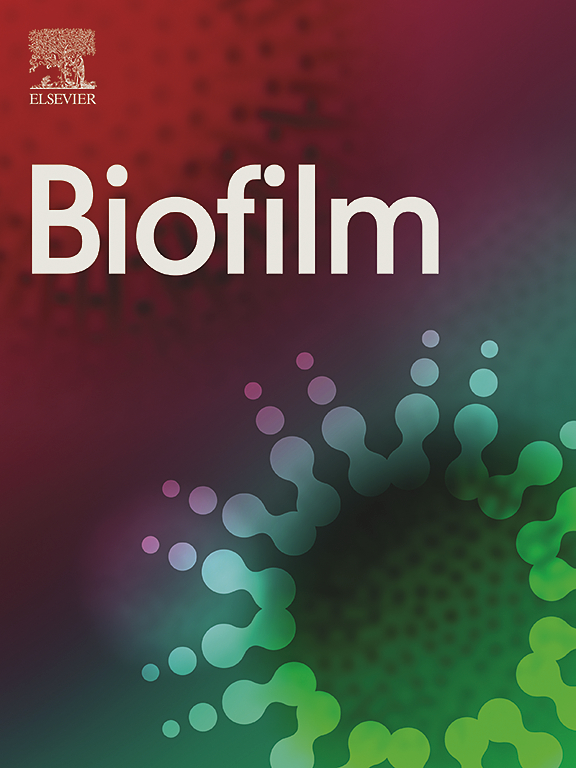乳酸转运体MCT4调节脂质代谢和炎症中枢基因,以减轻非酒精性脂肪性肝病的细胞内脂质积累
IF 9.4
2区 医学
Q1 BIOCHEMISTRY & MOLECULAR BIOLOGY
引用次数: 0
摘要
非酒精性脂肪性肝病(NAFLD)患者有多种代谢紊乱,乳酸水平明显升高。乳酸积累通过代谢重排和表观遗传修饰在疾病进展中发挥多效性作用。单羧酸转运蛋白4 (MCT4)在肝细胞中高度表达,负责将细胞内乳酸运输出细胞。为了探讨MCT4水平升高是否在NAFLD的发展中起作用,我们在肝细胞中过表达和沉默MCT4,并进行了全面的体外和体内分析。我们的研究结果表明,MCT4过表达下调脂质合成基因,上调脂质分解代谢基因。反之,沉默MCT4表达或抑制MCT4表达会导致细胞内脂质和葡萄糖代谢物的积累,导致肝脏脂肪变性。在小鼠NAFLD模型中,我们发现外源性MCT4过表达显著降低脂质代谢,减轻肝细胞脂肪变性。机制上,MCT4通过调节一组枢纽基因如Arg2、Olr1、Cd74、Mmp8、Irf7、Spp1和Apoe来缓解肝脏脂肪变性,进而影响PPAR、HIF-1、TNF、IL-17、PI3K-AKT、Wnt和JAK-STAT等参与脂质代谢和炎症反应的多种途径。总之,我们的研究结果强烈提示MCT4可能在调节脂质代谢和炎症中发挥重要作用,因此可以作为NAFLD的潜在治疗靶点。本文章由计算机程序翻译,如有差异,请以英文原文为准。
Lactate transporter MCT4 regulates the hub genes for lipid metabolism and inflammation to attenuate intracellular lipid accumulation in non-alcoholic fatty liver disease
Non-alcoholic fatty liver disease (NAFLD) patients have multiple metabolic disturbances, with markedly elevated levels of lactate. Lactate accumulations play pleiotropic roles in disease progression through metabolic rearrangements and epigenetic modifications. Monocarboxylate transporter 4 (MCT4) is highly expressed in hepatocytes and responsible for transporting intracellular lactate out of the cell. To explore whether elevated MCT4 levels played any role in NAFLD development, we overexpressed and silenced MCT4 in hepatocytes and performed a comprehensive in vitro and in vivo analysis. Our results revealed that MCT4 overexpression down-regulated the genes for lipid synthesis while up-regulating the genes involved in lipid catabolism. Conversely, silencing MCT4 expression or inhibiting MCT4 expression led to the accumulation of intracellular lipid and glucose metabolites, resulting in hepatic steatosis. In a mouse model of NAFLD, we found that exogenous MCT4 overexpression significantly reduced lipid metabolism and alleviated hepatocellular steatosis. Mechanistically, MCT4 alleviated hepatic steatosis by regulating a group of hub genes such as Arg2, Olr1, Cd74, Mmp8, Irf7, Spp1, and Apoe, which in turn impacted multiple pathways involved in lipid metabolism and inflammatory response, such as PPAR, HIF-1, TNF, IL-17, PI3K-AKT, Wnt, and JAK-STAT. Collectively, our results strongly suggest that MCT4 may play an important role in regulating lipid metabolism and inflammation and thus serve as a potential therapeutic target for NAFLD.
求助全文
通过发布文献求助,成功后即可免费获取论文全文。
去求助
来源期刊

Genes & Diseases
Multiple-
CiteScore
7.30
自引率
0.00%
发文量
347
审稿时长
49 days
期刊介绍:
Genes & Diseases is an international journal for molecular and translational medicine. The journal primarily focuses on publishing investigations on the molecular bases and experimental therapeutics of human diseases. Publication formats include full length research article, review article, short communication, correspondence, perspectives, commentary, views on news, and research watch.
Aims and Scopes
Genes & Diseases publishes rigorously peer-reviewed and high quality original articles and authoritative reviews that focus on the molecular bases of human diseases. Emphasis will be placed on hypothesis-driven, mechanistic studies relevant to pathogenesis and/or experimental therapeutics of human diseases. The journal has worldwide authorship, and a broad scope in basic and translational biomedical research of molecular biology, molecular genetics, and cell biology, including but not limited to cell proliferation and apoptosis, signal transduction, stem cell biology, developmental biology, gene regulation and epigenetics, cancer biology, immunity and infection, neuroscience, disease-specific animal models, gene and cell-based therapies, and regenerative medicine.
 求助内容:
求助内容: 应助结果提醒方式:
应助结果提醒方式:


